Repair (Café) workshops in a Repair Country : Part 1
– by Himadri Das and Purna Sarkar
India is a repair country. This phrase encapsulates many different layers of meanings. It suggests that repair is ubiquitous in Indian cities and wrapped up deeply in frugal culture. It seems very important to recognize this observation: Why is repair cheap in India?
Our journey of organizing Repair Café workshops in a repair country helped us unravel the secret of repair culture and understand the communities that practice repair trades within the realm of the informal sector.
When we started organizing Repair Café workshops in Bengaluru, we struggled to build a network of enthusiasts and volunteers. Many of the tinkerers we knew were not keen to participate in public workshops. Additionally, we were not sure about their abilities to diagnose and repair. However, we were confident that professional repairers would do it. The question was how to encourage them to come and participate? Many professional repairers were comfortable to join us at Repair Café Bengaluru as they looked to collect some additional income and be provided with food and tea. For the professional repairers, any kind of repair is seen as a potential for livelihoods.
For some professional repairers, the workshops were a place of sharing their knowledge which meant there was a certain level of respect and dignity they were accorded. They were mentors.
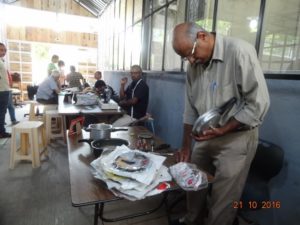
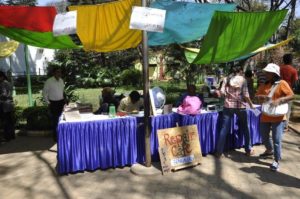
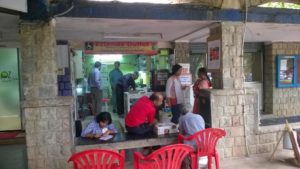
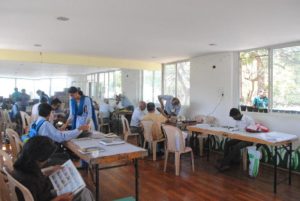
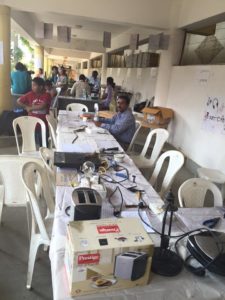
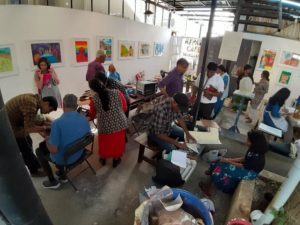
During the workshop it was as if two sections of society were interacting, there was a stark difference among the repairers and other participants who came in with items to repair. The repairers were in their work clothes and the others were in their Sunday attire. There would be a table with all the tools and spares to be used for repair between these two sections of society. Many a times, the workshop would tend to slip into the role of a service center, which was something we struggled to avoid. Many people would come in and leave their items to be repaired on the tables where the repairers were working. It was a struggle to encourage the participants to pick up the tools and help with the repairs. The people coming in with things to repair were coaxed to roll up their sleeves. Rolling up one’s sleeve is not looked upon favorably among those who were coming in with items to be repaired. The repair professions are generally identified with a particular caste and so volunteers feel hesitant to work with them as they don’t want to be seen as one of them. It may be construed as a generational thing we suspect that younger generations may behave differently.
It is a complex affliction in Indian cities. Although frugality is encoded in the Indian ethos, those who have managed to extract themselves from poverty whether through their own efforts or through inherited wealth and status look down upon frugality. The poorest section of society is the one that drives the informal sector to provide repair services. This section of society provides repair services to a generation that still believes in frugality. But the accumulation of wealth is changing things in the cities. The aspirations, particularly among the working-class urban population are to be able to waste or throw away. Being Frugal is seen as a sign of one who is constrained by resources.
The way to survive is to learn and adapt. The expectation is quick and efficient servicing as well cost-effective. Those who are nimble and navigate different skills, manage. In the Repair business, like in other businesses, it’s not enough to know your trade and have skills, one has to be socially adept and have a network, be able to speak many languages, be good with money, be presentable, and more. The pressures of repair business force one to imbibe these skills, mannerisms, and cleanliness etc.
We had a particularly difficult experience with one of our umbrella repairmen. He was really poor and would come to the workshops in drunken stupor. This particular vocation of umbrella repairs is slowly fading away and spare parts need to be salvaged from older umbrellas. He was not comfortable interacting with visitors and would mingle only with the cobbler. He was also most secretive about his work and not interested in brainstorming other repair problems. However, there are other umbrella repairers who conduct their trade with competence.
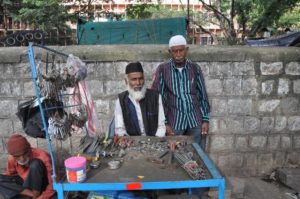
Frugal is stigmatized
In the Repair Café Bengaluru workshops, we never insisted for an ideal workshop place. But we insisted on things like access to a clean toilet, drinking water, a well-ventilated space, few chairs, tables, and electricity, etc. There were a variety of locations including in parks, in apartment garages, inside a gated community, around a lake in a school ground, parking area, in muddy ground, on a roadside, in a college premise, in public spaces, and even in a hospital basement.
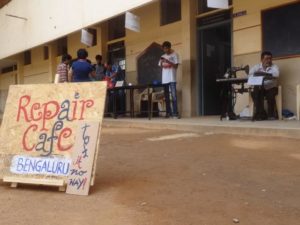
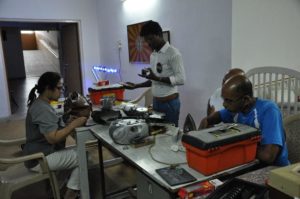
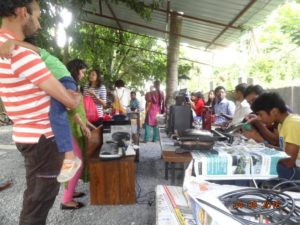
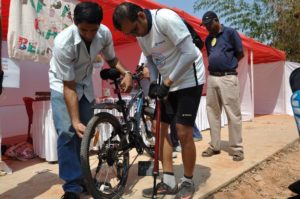
We are quite fascinated by the frugal workspace arrangement of professional repairers.
During the repair cafés, there were times when the tailor would sit atop his mobile workspace. He was told to sit outside the covered space of the workshop. The argument was, his workspace is a vehicle (he has a big sewing machine attached to his motorcycle), and so he should be in the parking lot. But we insisted that he should work inside as part of the workshop. Many visitors complained about his quality of work. We noticed visitors would come to his workstation and dump their clothes or make up cycling requests. It was like running a tailoring service, catering to the large number of requests. It was impossible for him to maintain the quality within the limited time of the workshop. But when volunteers started work as tailors, doing alterations and mending jobs, the visitors eased off. They would be more patient and converse with the volunteers and even try their own hand. But of course the number of repairs would be much less.
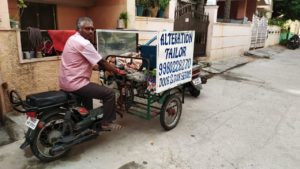
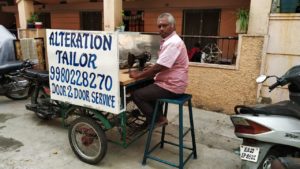
Even during this process of finding the perfect way to reach communities there were many logistical issues where we took lessons from the professional repairers. How does one carry a heavy sewing machine to a workshop across the city? The tailor with his mobile sewing machine gave us the perfect answer.
No matter whether it was inside or outside the cobbler would invariably sit on the floor, which was his choice of workspace. A table just didn’t work for him. Initially we were not sensitive to his need but we made amends when we realized. We started arranging carpets or plastic mats for him to sit and work. Slowly the visitors and enthusiasts were seen sitting with him on the floor, learning his way of stitching at his choice of workspace. He is very conversant and good at explaining things. He is very fluent in at least 3 South Indian languages and in English too.
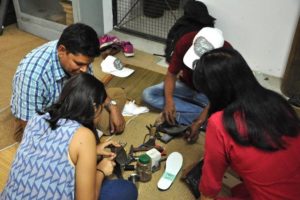
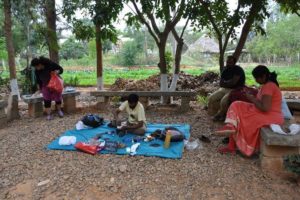
The tinkerers and the professional repairers were flexible enough to adjust to the workspaces in which Repair Cafe workshops were rolled out.
This concludes part one of this blog. In part two, we will be exploring aspects such as salvaging of parts, the debate of repairing versus replacing and how repair workshops reached out to communities. The inner loop of the circular economy which talks about encouraging repair habits among individual households remains the main challenge for society. This is the task we clearly see for Repair Cafe Bengaluru.
NOTE: All images that are not explicitly cited from an external source were created by the authors.